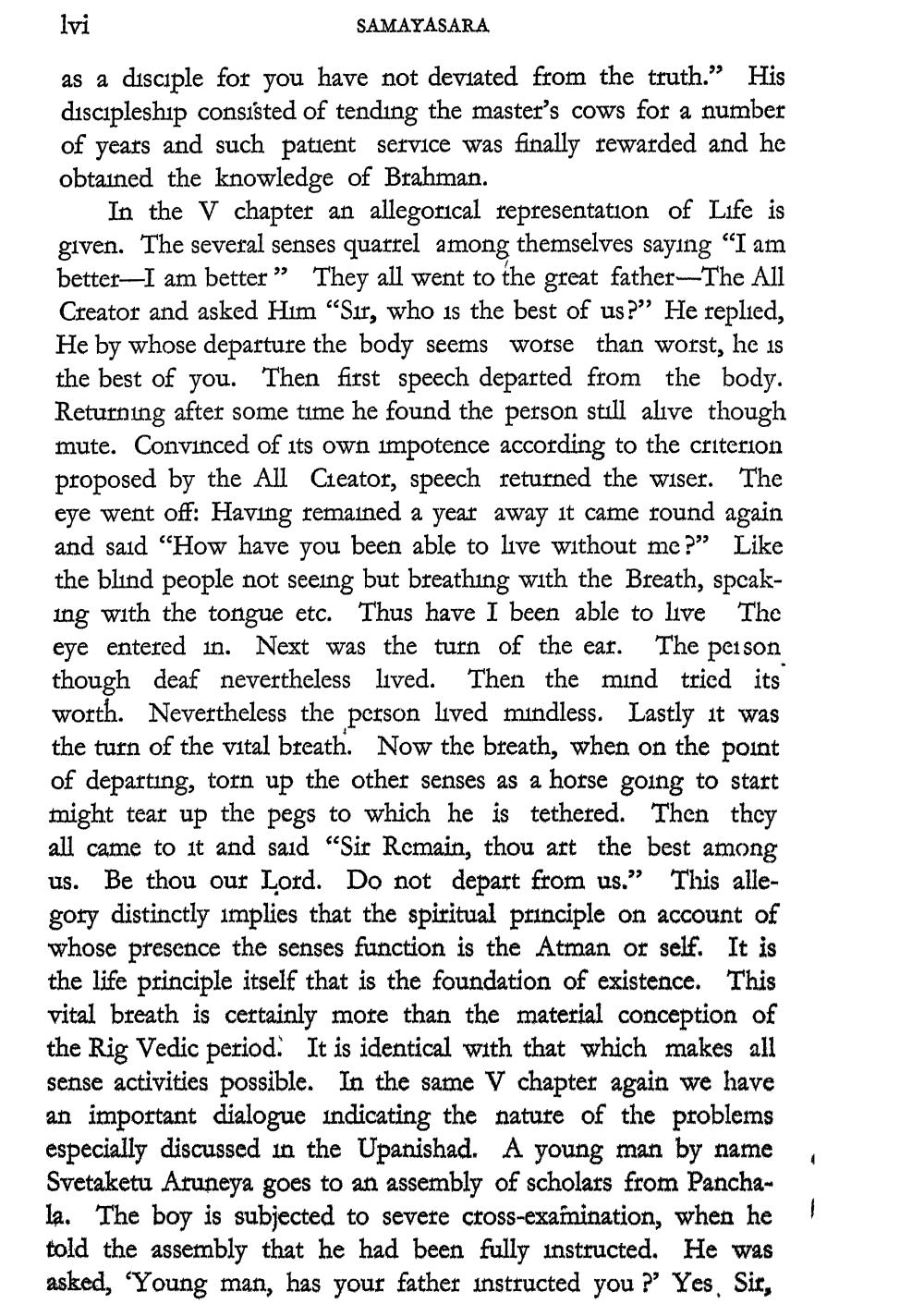________________
lvi
as a disciple for you have not deviated from the truth." His discipleship consisted of tending the master's cows for a number of years and such patient service was finally rewarded and he obtained the knowledge of Brahman.
In the V chapter an allegorical representation of Life is given. The several senses quarrel among themselves saying "I am better-I am better" They all went to the great father-The All Creator and asked Him "Sir, who is the best of us?" He replied, He by whose departure the body seems worse than worst, he is the best of you. Then first speech departed from the body. Returning after some time he found the person still alive though mute. Convinced of its own impotence according to the criterion proposed by the All Creator, speech returned the wiser. The eye went off: Having remained a year away it came round again and said "How have you been able to live without me?" Like the blind people not seeing but breathing with the Breath, speaking with the tongue etc. Thus have I been able to live The eye entered in. Next was the turn of the ear. The person though deaf nevertheless lived. Then the mind tried its worth. Nevertheless the person lived mindless. Lastly it was the turn of the vital breath. Now the breath, when on the point of departing, torn up the other senses as a horse going to start might tear up the pegs to which he is tethered. Then they all came to it and said "Sir Remain, thou art the best among us. Be thou our Lord. Do not depart from us." This allegory distinctly implies that the spiritual principle on account of whose presence the senses function is the Atman or self. It is the life principle itself that is the foundation of existence. This vital breath is certainly more than the material conception of the Rig Vedic period. It is identical with that which makes all sense activities possible. In the same V chapter again we have an important dialogue indicating the nature of the problems especially discussed in the Upanishad. A young man by name Svetaketu Aruneya goes to an assembly of scholars from Panchala. The boy is subjected to severe cross-examination, when he told the assembly that he had been fully instructed. He was asked, 'Young man, has your father instructed you?' Yes, Sir,
SAMAYASARA




